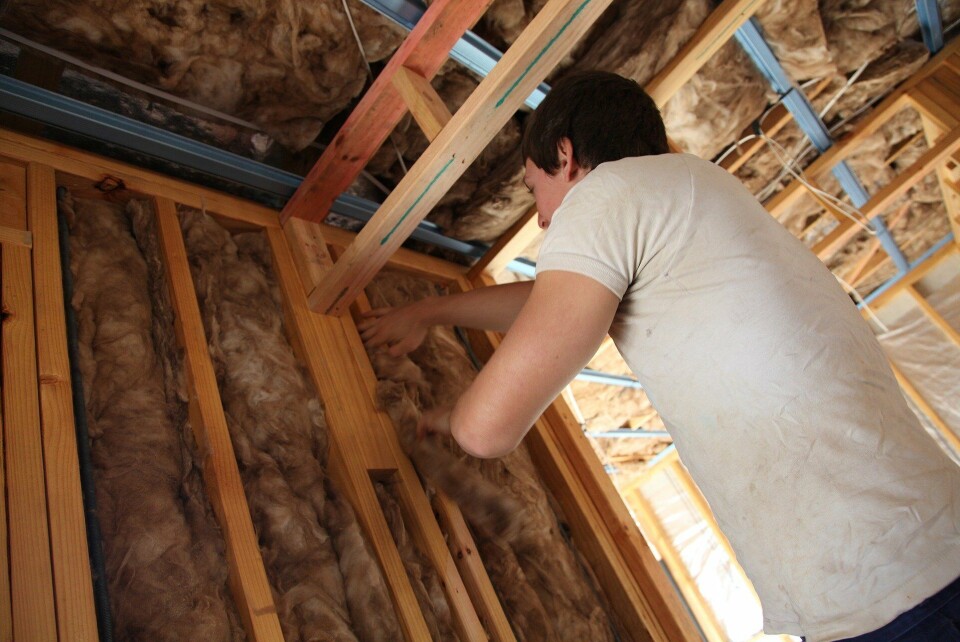-
Why you may see a low-flying helicopter near you in west France
Residents of the Loire-Atlantique region may spot the aircraft until at least the end of May
-
Group purchase offer for wood pellets launched by French consumer association
Highly competitive prices pledged with applicants given a quote they can choose to take up (or not)
-
French energy vouchers: 2025 date confirmed – and it is much later than usual
Five million people are eligible for the physical voucher, which can be up to €277
Abused €1 insulation scheme in France to end early
French one-euro home insulation and boiler replacement schemes are to end six months earlier than planned on July 1

One-euro home insulation and boiler replacement schemes are to end six months earlier than planned.
The crooks who used them to con homeowners and the companies that financed them are a major reason for closing the schemes on July 1.
At one stage, most unwanted telemarketing calls in France were from firms offering “insulation for €1” under the scheme.
The announcement relates to coup de pouce isolation and coup de pouce chauffage, which are specific aids for loft insulation or buying a new boiler.
They have been available as part of the official Certificats d’Economie d’Energie (CEE) scheme, under which energy firms such as EDF and Total can offset some of the taxes related to CO2 production by financing energy-saving work.
There are still other schemes to encourage people to insulate their homes in the government’s strategy to reduce CO2 emissions. However, no specific replacement was offered when the planned end of these schemes was announced.
A decree confirming the end of the schemes has yet to be passed.
In reality, a cost as low as one euro is usually only possible for the most needy households, under certain conditions.
The work should also be done by an artisan with RGE environmental certification.
In practice, unscrupulous telemarketing companies jumped on the bandwagon.
When the telemarketers found someone interested, they would sell on details to firms that would do the work.
Many of these firms were not local artisans but were set up specially, often using labour on dubious work contracts.
They would do the job very cheaply, then charge as much as possible to the companies paying for the work.
At the same time, they would try to milk as much out of the householders – by charging above the odds for painting and decoration after the work was done, for example.
Sometimes, they even pushed people into taking out loans for the extra work.
Last November, five companies and eight people were fined between €5,000 and €50,000 and sentenced to jail terms of 10 months to three years in Le Mans in cases related to insulation.
Anti-fraud officers had started investigating after receiving more than 100 complaints about work done by the firms.
Charges included illegal aggressive sales tactics, using unqualified labour, demanding payment before the work was done, taking money illegally from companies, fraud and attempted fraud, and receiving goods and cash illegally.
Even with the schemes’ bad reputation, the announcement of their imminent end provoked a strong reaction from builders.
Trade body Fédération Française de Bâtiment said many legitimate firms had restructured themselves to take part and they were likely to face difficulties and possible job losses as a result.
The government said low-income households would still end up paying a maximum of 10% of costs of insulation or other energy-saving work if they used its MaPrimeRénov grant scheme.
The remainder could be financed through a state-backed interest-free eco-loan.
Any insulation work started before this July 1 will still be covered by the coup de pouce schemes.
Reforms of the CEE system are under way.
The government now wishes to place more emphasis on another coup de pouce that helps those willing to have a full evaluation of their home’s energy-efficiency and overall improvements, rather than individual works.
For free, state-approved help with finding legitimate low-cost eco-friendly home renovation solutions, visit faire.fr.
Related stories
Is there an official flooding risk watchdog in France?
Top 500 best places to live in France - is your commune on the list?
























